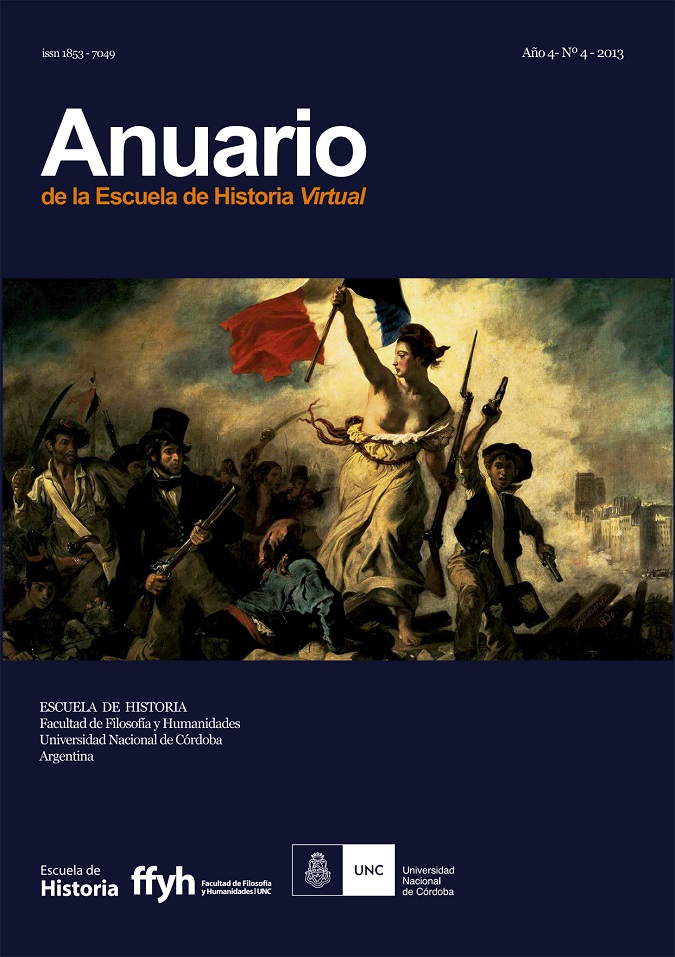Modernity and Civil Humanism: Controversies and Perspectives related to Baron’s Work
Main Article Content
Abstract
In 1952, Hans Baron finished his most important
work, The Crisis of the Early Italian Renaissance,
published in two volumes by Princeton University
in 1955. In this work, the author expounds on the
concept of “civil humanism” which he uses to
analyze the Florentine humanism of the fifteenth
century, and in particular, Leonardo Bruni’s work.
According to Baron, Florentine humanists, fighting
for Florence’s freedom against the threat of
Visconti’s Milan, developed a novel relationship
between intellectualism and politics. This
intellectual movement also paved the way for
modern thought. Baron’s work has been critically
reviewed many times since then, especially, by
those who vindicated the continuities between the
Middle Ages and the Renaissance as well as by the
ones who saw the success that The Crisis was
among American academia and its influence on the
consolidation of the “American Ideology” in a
critical way. This article suggests a revision of
Baron’s thesis and the controversies it has caused in
order to outline the possibility of revising the
concept of “Civil Humanism” from Leon Battista
Alberti’s work’s point of view.
Downloads
Article Details
Bajo los siguientes términos:
Atribución - Usted debe dar el crédito apropiado, proporcionar un enlace a la licencia e indicar si se hicieron cambios. Usted puede hacerlo de cualquier manera razonable, pero no de ninguna manera que sugiera que el licenciante lo respalda a usted o a su uso.
No comercial - Usted no puede utilizar el material con fines comerciales.
NoDerivados - Si remezclas, transformas o construyes sobre el material, no puedes distribuir el material modificado.
